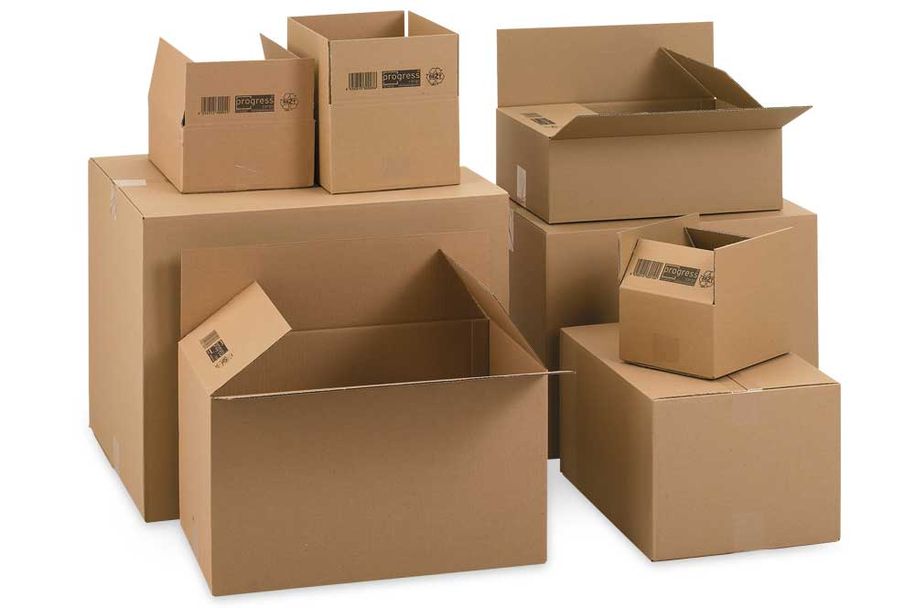In recent years, the packaging industry has witnessed a remarkable innovation that has transformed the way products are stored, transported, and displayed. Foldable boxes, also known as collapsible boxes or foldable cardboard boxes, have emerged as a game-changer in the world of packaging. These versatile and space-saving solutions offer numerous benefits to businesses and consumers alike. In this article, we will explore the concept of foldable boxes, their advantages, and the ways in which they are revolutionizing the packaging industry.
I. Understanding Foldable Boxes
Foldable boxes, as the name suggests, are packaging solutions that can be easily folded or collapsed when not in use. They are typically made from sturdy cardboard or corrugated materials, ensuring durability and protection for the products they contain. The design of these boxes allows them to be assembled quickly and securely, without the need for additional tools or adhesives.
Foldable boxes come in various shapes and sizes, catering to the diverse needs of different industries. From small retail items to large industrial equipment, these boxes offer a versatile packaging solution. They are particularly popular in industries such as e-commerce, retail, logistics, and manufacturing, where efficient storage and transportation are crucial.
II. Advantages of Foldable Boxes
The adoption of foldable boxes has gained momentum due to the numerous advantages they offer to both businesses and consumers. Let’s delve into some of the key benefits:
- Space Efficiency: Foldable boxes are designed to optimize space utilization. When not in use, they can be collapsed or folded flat, reducing storage space requirements significantly. This feature is particularly beneficial for businesses with limited storage facilities, as it allows them to maximize their available space.
- Cost Savings: Traditional rigid packaging solutions often result in higher shipping and warehousing costs due to their bulky nature. Foldable boxes, on the other hand, minimize transportation costs by reducing the required volume. The lightweight nature of cardboard further contributes to cost savings by reducing fuel consumption and shipping fees.
- Sustainability: With growing environmental concerns, sustainable packaging has become a priority for many businesses. Foldable boxes made from recyclable and biodegradable materials align with eco-friendly practices. By opting for foldable cardboard boxes, companies can reduce their carbon footprint and demonstrate their commitment to environmental stewardship.
- Easy Assembly and Disassembly: Foldable boxes are designed for quick assembly without the need for specialized tools or complex instructions. This ease of use saves time and resources during the packaging process. Additionally, these boxes can be disassembled easily, simplifying recycling and minimizing waste.
- Protection and Durability: Despite their collapsible nature, foldable boxes provide excellent protection for the products they contain. The sturdy cardboard material ensures structural integrity, preventing damage during transit. Furthermore, these boxes can be designed with additional features such as inserts and dividers to secure fragile items.
III. Applications of Foldable Boxes
The versatility of fold boxes makes them suitable for a wide range of applications across industries. Here are some notable use cases:
- E-commerce and Retail: Foldable boxes are ideal for e-commerce businesses due to their space-saving design. These boxes can be easily shipped to customers, and their collapsible nature allows for hassle-free returns. In retail stores, foldable boxes enable efficient storage, ensuring products are displayed neatly while minimizing storage costs.
- Logistics and Supply Chain: The logistics industry greatly benefits from fold boxes as they reduce the volume of empty packaging during return journeys. This optimization of space leads to more efficient transportation, ultimately saving costs for logistics providers. Fold boxes also streamline the loading and unloading processes, facilitating faster turnaround times.
- Manufacturing and Industrial Equipment: Fold boxes are extensively used in the manufacturing sector to package and transport various components and industrial equipment. The collapsible design simplifies storage on factory floors and warehouses. Additionally, these boxes can be customized to accommodate specific shapes and sizes, ensuring a secure fit for specialized equipment.
- Moving and Storage: When it comes to moving or storage, fold boxes provide a convenient solution. They can be easily assembled, packed with belongings, and collapsed after use. These boxes offer robust protection for personal items while optimizing storage space, making them ideal for moving companies and self-storage facilities.
Conclusion
Fold boxes have revolutionized the packaging industry by combining space efficiency, cost savings, and environmental sustainability. The advantages they offer to businesses and consumers have led to their widespread adoption in various sectors.
From e-commerce to logistics and manufacturing, fold boxes have transformed the way products are packaged, stored, and transported. As companies strive for more sustainable and efficient practices, the demand for fold boxes is expected to continue growing.
With ongoing advancements in materials and design, these innovative packaging solutions are poised to shape the future of the industry, providing practical and eco-friendly options for businesses worldwide.
